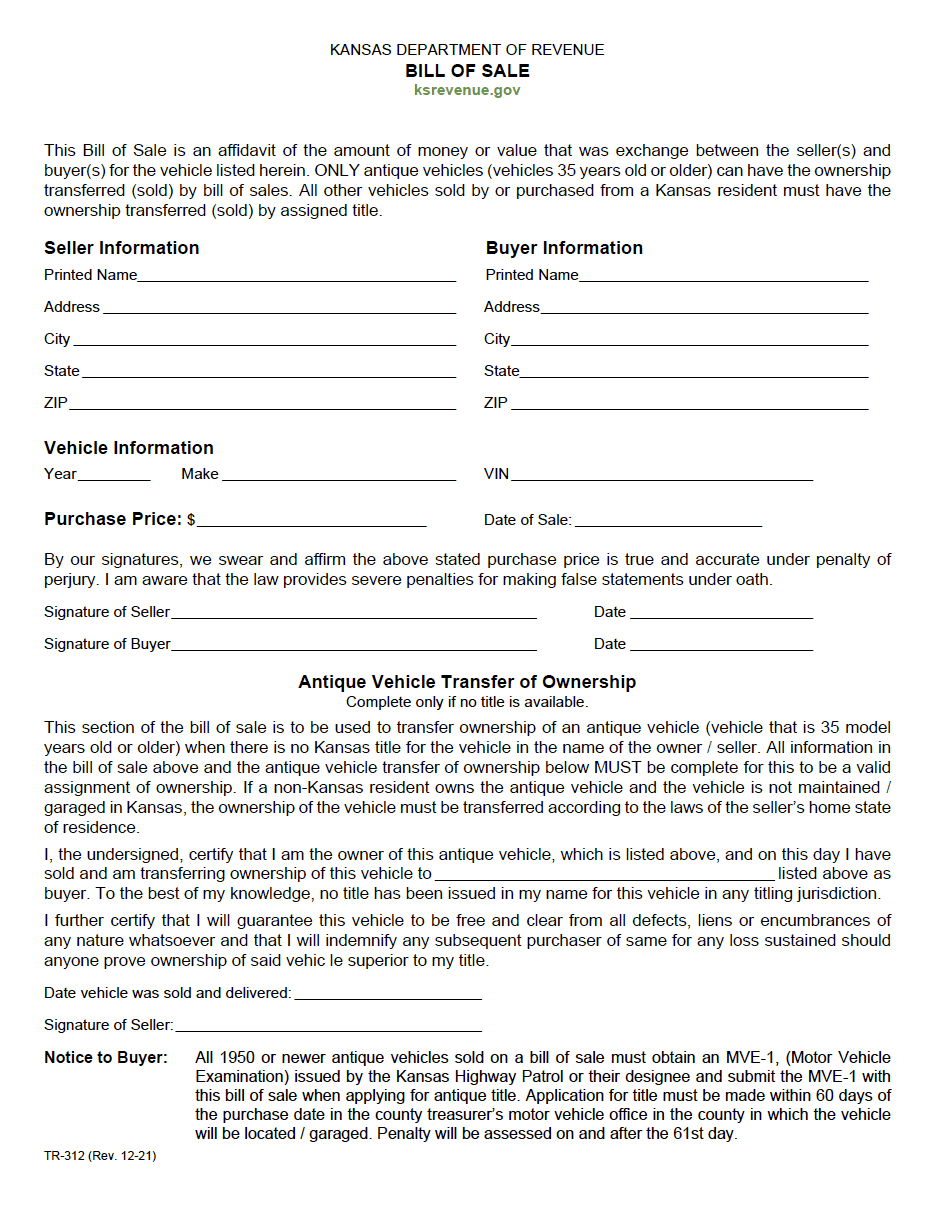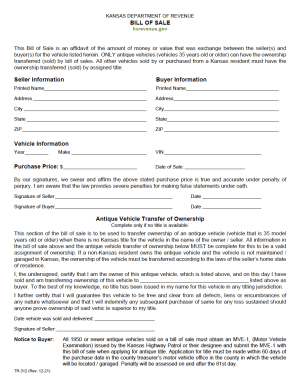Kansas Bill of Sale Forms (5)
A Kansas bill of sale form legitimizes the transfer of ownership of an item between two people.
The document is often used in private transactions to document the sale and provide proof of purchase to the new owner. It includes the names and addresses of the buyer and seller, a description of the item sold, the sale price, and both party’s signatures.
Summary
|
Types (5)
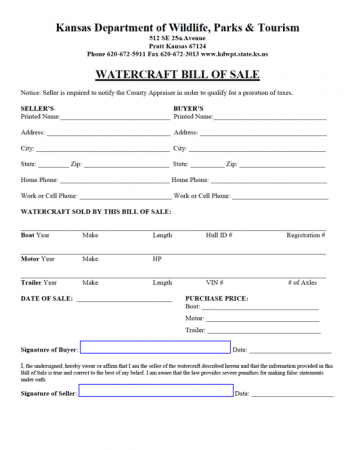 Boat Bill of Sale – For the selling of a water vessel.
Boat Bill of Sale – For the selling of a water vessel.
Download: PDF
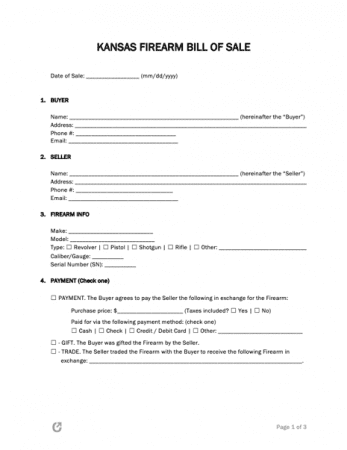 Firearm Bill of Sale – Used when the ownership of a gun changes.
Firearm Bill of Sale – Used when the ownership of a gun changes.
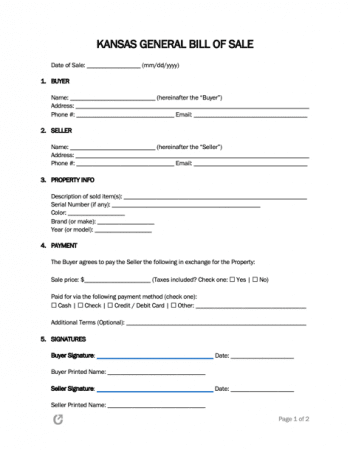 General Bill of Sale – Signifies that the sale of a generic item happened.
General Bill of Sale – Signifies that the sale of a generic item happened.
Motor Vehicle Bill of Sale Download: PDF
|
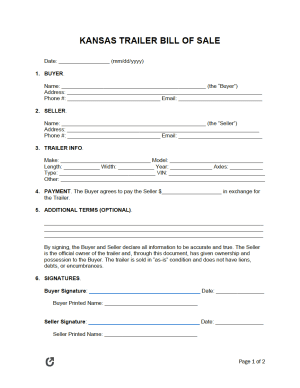 Trailer Bill of Sale – Provides evidence of a utility trailer transaction.
Trailer Bill of Sale – Provides evidence of a utility trailer transaction.
Signing Requirements
| Bill of Sale Type | Buyer Signature | Seller Signature | Notarization |
| Boat | Required | Required | Not required |
| Firearm | Required | Required | Not required |
| General (others) | Required | Required | Not required |
| Motor Vehicle | Required | Required | Not required |
| Trailer | Required | Required | Not required |
What is a Kansas Bill of Sale?
A Kansas bill of sale gives a person the ability to claim an item as their personal property. It shows that they legally paid for or acquired the object through trade or gift. They can use the form for registration, titling, or simply proving their ownership.
By claiming the possession, the owner has full responsibility for it. In other words, they must abide by the applicable federal and state laws. For example, if a person acquires a gun, they cannot use it while intoxicated. Similarly, if someone buys a boat, they must pay the yearly taxes. The bill of sale serves as the primary identifier of ownership and bestows these duties on the person named in the form.
Registration Forms: Boats
|
Registration Forms: Firearms
Weapon holders do not need to register their firearms in Kansas.
Registration Forms: Vehicles
|
Additional (Optional) Documents
- Kansas Motor Vehicle Power of Attorney (Form TR-41) – Allows you to give someone the power to handle responsibilities for their vehicle.
- Kansas Resident / Business Out-of-State VIN Verification (Form TR-65) – Required if the owner bought the car in another state or has an out-of-state title.
Registration Forms: Trailers
|
